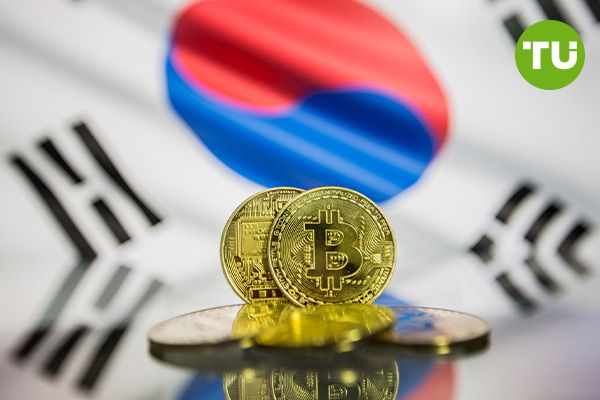South Korea tightens control on crypto transactions to combat financial crimes
 South Korea tightens control on crypto transactions to combat financial crimes
South Korea tightens control on crypto transactions to combat financial crimes
In a bid to strengthen oversight and mitigate illegal financial activity, South Korea is tightening regulations on cryptocurrency transactions, with a particular focus on cross-border digital asset transfers. This shift aligns with South Korea's broader initiative to enhance financial security and regulatory compliance within its rapidly growing crypto market, which ranks among the largest globally.
The recent measures implemented by the country aim to improve transparency, especially in light of growing concerns over money laundering and unregulated capital flows through digital currencies, reports The Korea Times.
The South Korean government has announced plans to introduce stricter reporting requirements for crypto firms and individual investors involved in cross-border transactions. Under the proposed guidelines, cryptocurrency exchanges and financial service providers will be required to report any suspicious transactions that could indicate illegal financial activities, such as large cross-border transfers without proper documentation. Authorities noted that these guidelines aim to close loopholes that may allow funds to move undetected through the largely decentralized digital asset landscape.
This regulatory expansion reflects South Korea's adoption of recommendations from the Financial Action Task Force (FATF), which advises countries to monitor and regulate virtual asset service providers (VASPs) to meet anti-money laundering (AML) standards. By implementing these measures, South Korea joins other countries in adopting the FATF’s “Travel Rule,” which requires crypto exchanges and related businesses to collect and share personal information of parties involved in crypto transactions that exceed a certain threshold. The rule seeks to ensure transparency by documenting the identities of both the initiator and recipient of a transaction, making this information accessible to regulatory authorities.
South Korea’s increased control over cryptocurrency transactions follows a series of high-profile cases in which cryptocurrencies were used to evade taxes and facilitate offshore fund transfers. In response, the Korean Financial Intelligence Unit (KFIU) has strengthened its tracking and enforcement capabilities. The agency has already mandated local exchanges to cooperate in identifying suspicious activities, marking an escalation in the government’s regulatory reach. The expanded controls are expected to apply to both domestic exchanges and offshore platforms serving South Korean clients, signaling a comprehensive approach to tackling financial crimes within the crypto sector.
Despite potential concerns over privacy and innovation constraints, South Korean regulators emphasize that these controls are essential to protect investors and prevent financial crimes. As South Korea continues to explore a central bank-issued digital currency, these regulatory measures could also serve as a testing ground for further developments in financial oversight.
The success of South Korea's regulatory approach may encourage other countries to consider similar measures, potentially leading to a more standardized international framework for monitoring crypto transactions. As the regulatory landscape for digital assets evolves, market participants and investors in South Korea and beyond will likely need to adapt to an era of increased scrutiny and compliance requirements.
Previously, South Korea’s Financial Services Commission introduced new regulations for NFTs, classifying certain NFTs as virtual assets under regulatory standards.
Also Read: Tether under pressure as Circle's euro stablecoin hits record high of $100 million













































































































































